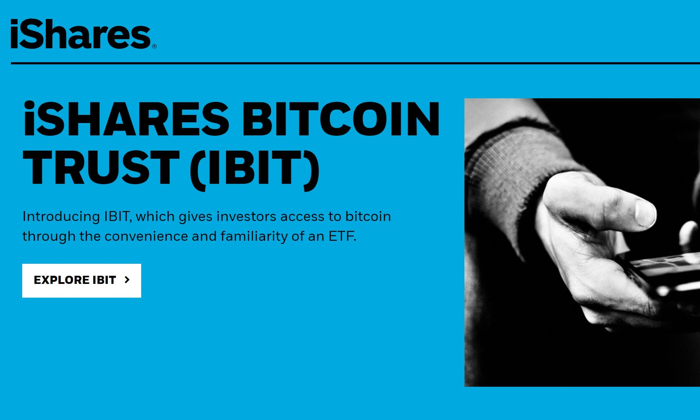In North Dakota, the regulation of crypto ATMs has become a pressing issue as lawmakers strive to create a safer environment for digital currency transactions. Recently, North Dakota crypto ATM regulations took a significant leap forward with the passage of House Bill 1447, which introduces critical measures to reduce crypto ATM fraud and enhance user protections. Approved by the state Senate on March 18, this legislation enforces a daily transaction limit of $2,000 per user and mandates that operators obtain a money transmitter license to operate legally. Such actions align with North Dakota legislation aimed at fortifying Bitcoin ATM regulations and ensuring accountability in the burgeoning cryptocurrency landscape. As the state prepares to combat the rising threats associated with digital currency platforms, these regulations mark a pivotal moment for both consumers and operators alike.
As digital currency continues to grow in popularity, particularly in North Dakota, regulations surrounding cryptocurrency kiosks are becoming increasingly essential. Recent initiatives have highlighted the importance of integrating security measures into crypto banking operations, especially amidst the rising tide of fraudulent activities linked to virtual currency terminals. By establishing guidelines for cash withdrawal limits and mandating transparent disclosures, North Dakota is taking significant strides in creating a safer operational framework for users interacting with these electronic money machines. Notably, the newly passed legislation aims not only to monitor suspicious activities within the Bitcoin ATM sphere but also to empower users with knowledge on preventing and recognizing potential scams, emphasizing the state’s proactive stance in tackling crypto-related challenges.
Understanding North Dakota Crypto ATM Regulations
North Dakota crypto ATM regulations are becoming more stringent as lawmakers aim to protect users from potential fraud associated with these digital currency machines. With the passing of House Bill 1447, operators will now be required to obtain a money transmitter license, ensuring that they adhere to state-established guidelines. This legislative move is a proactive approach designed to foster a secure environment for residents engaging in cryptocurrency transactions. By mandating these licenses, North Dakota is demonstrating its commitment to regulating the crypto space and safeguarding its citizens from evolving threats.
Moreover, HB 1447 highlights the importance of transparency in crypto ATM operations. Operators must provide clear disclosures regarding their services in the customer’s preferred language. This initiative ensures that users fully understand the terms and conditions of the transactions they are entering into, further aligning with the state’s objectives to minimize misunderstandings and potential fraud scenarios. The increased oversight will not only clarify the operators’ responsibilities but also empower users with the knowledge needed to protect themselves in the burgeoning world of cryptocurrency.
Impact of House Bill 1447 on Cryptocurrency Transactions
The enactment of House Bill 1447 will significantly impact cryptocurrency transactions conducted through ATMs in North Dakota. By instituting a daily transaction limit of $2,000 per user, the legislation aims to reduce the risk of large-scale fraud that can occur with unlimited withdrawals. Although the initial proposal was a $1,000 cap, lawmakers recognized the necessity of balancing user flexibility with protective measures against potential exploitations. This evolution in policy underscores the necessity for ongoing legislative efforts to keep pace with the fast-changing cryptocurrency landscape.
Another major impact of HB 1447 is the requirement for operators to implement advanced blockchain analytics tools. These tools can help in the identification of suspicious wallet activity and potential money laundering operations. By being proactive about fraud detection, operators can significantly lessen the likelihood of users falling prey to scams. The regulations emphasize the collaborative role of both operators and users in maintaining the integrity of the cryptocurrency ecosystem, ultimately fostering a safer transaction environment.
Fraud Prevention Strategies in North Dakota Crypto ATMs
As part of the comprehensive measures outlined in House Bill 1447, fraud prevention strategies have been prioritized to safeguard cryptocurrency users in North Dakota. Operators are required to establish a robust anti-fraud policy that outlines procedures for detecting and preventing fraudulent activities. This policy not only informs operational practices but also reassures users that there are established safeguards around their transactions. Additionally, the law mandates that ATM machines display fraud warnings prior to any transaction, providing crucial information that can help users recognize potential scams ahead of time.
Furthermore, the bill mandates that operators offer live assistance during specified hours, thereby enhancing customer service and support. This feature is designed to aid users in navigating their transactions safely and efficiently. By ensuring that help is readily available, the legislation seeks to elevate user confidence in utilizing crypto ATMs. Together, these fraud prevention strategies demonstrate a firm commitment to maintaining a secure atmosphere for cryptocurrency enthusiasts while promoting responsible usage of these valued financial tools.
Navigating the Future of Crypto Banking in North Dakota
The road to a regulated crypto banking environment in North Dakota is paved with the progressive legislation of bills like HB 1447. By creating precise regulations surrounding crypto ATMs, the state is paving the way for more formalized cryptocurrency banking practices. This initiative aligns with the growing trend where traditional banking systems are beginning to integrate cryptocurrencies into their services. As regulatory frameworks such as this one develop, we can anticipate a future where the lines between conventional and digital banking become increasingly blurred.
Moreover, the growing call for clarity and oversight in crypto transactions can lead to a well-defined crypto bank license process. Such licensing not only legitimizes cryptocurrency operations but also instills trust among users. As North Dakota lawmakers continue to refine policies to address emerging challenges, the establishment of a defined framework for crypto banking could well be a catalyst for financial innovation in the state. This evolution is not merely about regulation; it’s about fostering an environment where cryptocurrency can thrive responsibly alongside traditional financial systems.
Addressing Concerns Around Cryptocurrency Fraud
Cryptocurrency fraud has become a significant concern for users, especially with the increasing number of transactions conducted through crypto ATMs. The passing of House Bill 1447 marks North Dakota’s recognition of these challenges and its commitment to addressing them effectively. By implementing mandatory anti-fraud measures and requiring operators to use blockchain analytics, the state aims to create a more secure framework for cryptocurrency transactions. It also serves as an essential step toward restoring confidence among users who may be wary of the risks involved.
As the cryptocurrency landscape continues to evolve, fraud prevention must remain a prime focus. North Dakota’s legislation empowers operators to take necessary precautions, but it also places a shared responsibility on users to remain vigilant. Educating the public about the potential risks associated with crypto transactions—and how to identify them—will be critical in mitigating fraud cases effectively. With the right tools and education, North Dakota can lead the way in developing robust defenses against cryptocurrency fraud.
Live Customer Support and Its Importance in Crypto Transactions
One of the key features introduced by House Bill 1447 is the requirement for crypto ATM operators to provide live customer support during designated hours. This provision is invaluable in ensuring that users can receive immediate assistance when navigating their cryptocurrency transactions. The availability of customer support creates an essential safety net for users, allowing them to clarify doubts and seek help, especially in cases where there may be confusion regarding transactions or potential fraud risks.
Additionally, showcasing a toll-free customer service number on the ATM machines emphasizes the importance of accessible communication. By ensuring that users can easily contact the support team, the legislation not only fosters trust but also encourages responsible use of crypto ATMs. This responsiveness is vital in a rapidly-evolving market where users may experience challenges or uncertainties at any time. Ultimately, live customer support plays a pivotal role in enhancing the overall user experience and solidifying confidence in the crypto ATM ecosystem.
The Role of Blockchain Analytics in Fraud Prevention
The integration of blockchain analytics tools into the regulation of crypto ATMs represents a groundbreaking shift in fraud prevention strategies in North Dakota. By requiring operators to utilize these advanced technologies, House Bill 1447 sets a precedent for how transaction monitoring can be effectively implemented in the cryptocurrency realm. Blockchain analytics provides operators with critical insights into transaction patterns and wallet activities, allowing for the early detection of suspicious behaviors that may indicate fraudulent activities.
Furthermore, the requirement for operators to actively monitor these analytics highlights a proactive stance against fraud. Instead of merely reacting after fraud has occurred, operators are empowered to identify and prevent issues before they escalate. This level of oversight not only protects users but also builds trust within the cryptocurrency community, as individuals are more likely to engage with systems that prioritize security. Through advanced fraud detection methods, North Dakota is paving the way toward a more reliable cryptocurrency market.
Future Legislative Goals for Crypto Regulation
As North Dakota moves forward with its crypto regulations, future legislative goals will likely focus on further enhancing the security and integrity of cryptocurrency transactions. Building upon House Bill 1447’s framework, lawmakers may explore additional measures to streamline the licensing process for crypto businesses, potentially attracting more operators to the state. With the ongoing maturation of the cryptocurrency industry, it will be crucial for legislators to remain adaptable and responsive to emerging challenges and opportunities.
Moreover, aspiring to create comprehensive regulations that encompass all facets of cryptocurrency operations—including exchanges, wallets, and ATMs—will be instrumental in fostering a cohesive regulatory environment. Such measures could include developing a crypto bank license that aligns with traditional banking standards while accounting for the unique aspects of digital currencies. As North Dakota engages in this legislative journey, their proactive approach can serve as a model for other states looking to address the complexities of cryptocurrency regulation effectively.
Education and Awareness: Keys to Secure Crypto Transactions
With the rise in cryptocurrency adoption, education and awareness are paramount to ensuring secure transactions. As North Dakota solidifies its regulatory framework through bills like HB 1447, educating users about the intricacies of crypto ATMs becomes increasingly important. Providing resources that explain how to recognize potential fraud and understand compliance measures can empower users to make informed decisions. Educational initiatives can significantly enhance user confidence and encourage responsible use of crypto services.
In addition to user-focused educational programs, operators should be mandated to offer training and resources about fraud risks associated with crypto transactions. These programs can help operators better serve their customers while aligning with the state’s regulatory requirements. By fostering a culture of awareness and proactive education, North Dakota can bolster its efforts to combat cryptocurrency fraud while facilitating a secure environment for innovation and growth within the digital currency sphere.
Frequently Asked Questions
What are the main provisions of North Dakota’s HB 1447 regarding crypto ATM regulations?
House Bill 1447 introduces several key provisions for regulating crypto ATMs in North Dakota. These include a daily transaction limit of $2,000 per user, mandatory money transmitter licenses for operators, and the use of blockchain analytics tools to detect fraud. Operators must also implement and maintain an anti-fraud policy, provide disclosures in users’ preferred languages, and offer live customer support during specified hours.
How does HB 1447 aim to reduce crypto ATM fraud in North Dakota?
HB 1447 aims to combat crypto ATM fraud in North Dakota by mandating operators to use blockchain analytics tools for monitoring suspicious activities and requiring transparency in operations. The bill also enforces a daily withdrawal limit and requires operators to display fraud warnings and provide an anti-fraud policy, enhancing consumer protection against scams and fraudulent transactions.
What is the significance of the $2,000 daily withdrawal limit in North Dakota Bitcoin ATM regulations?
The $2,000 daily withdrawal limit established in the Bitcoin ATM regulations of North Dakota is significant as it strikes a balance between user accessibility and fraud prevention. This cap was designed to mitigate the risks associated with large, anonymous transactions that could facilitate scams, while still offering users the flexibility to withdraw substantial amounts.
What compliance measures do crypto ATM operators need to fulfill under North Dakota legislation?
Under North Dakota legislation, specifically HB 1447, crypto ATM operators must comply by obtaining a money transmitter license, implementing effective fraud detection tools, maintaining a written anti-fraud policy, and providing clear disclosures to users. They are also required to offer live assistance and display a toll-free customer service number for enhanced user support.
Are there any specific consumer protections included in North Dakota’s crypto ATM regulations?
Yes, North Dakota’s crypto ATM regulations include several consumer protections, such as requiring operators to disclose transaction terms transparently, showing fraud warnings before transactions, and offering live customer support during designated hours. These measures are designed to enhance user safety and reduce the incidence of crypto ATM fraud.
What steps are necessary for a crypto ATM operator to license under North Dakota’s regulations?
To obtain a license under North Dakota’s crypto ATM regulations, operators must apply for a money transmitter license. This involves meeting specific regulatory requirements, including demonstrating the use of blockchain analytics for fraud detection, maintaining compliance with the state’s anti-fraud policies, and fulfilling the disclosure requirements outlined in HB 1447.
How will the enforcement of HB 1447 impact the future of crypto ATMs in North Dakota?
The enforcement of HB 1447 is likely to enhance the regulatory framework for crypto ATMs in North Dakota, leading to increased accountability among operators. By formally integrating anti-fraud measures and consumer protections, the legislation can help build public trust in crypto ATMs, potentially encouraging their responsible growth within the state.
| Key Point | Description |
|---|---|
| House Bill 1447 (HB 1447) | A bill passed by North Dakota lawmakers to regulate crypto ATMs. |
| $2,000 Daily Transaction Limit | Imposes a daily cap on user transactions to reduce fraud. |
| Licensing Requirement | Operators must obtain a money transmitter license to operate. |
| Transparency in Operations | Operators must provide terms and conditions in the customer’s language. |
| Fraud Detection Tools | Use of blockchain analytics tools mandated to identify fraudulent activities. |
| Fraud Warnings | Machines must display fraud warnings before processing any transactions. |
| Customer Support | Live assistance is required on weekdays from 8 A.M. to 10 P.M. CT. |
| Anti-Fraud Policy | Operators must develop a written anti-fraud policy. |
| Current Crypto ATM Count | North Dakota has about 45 Bitcoin ATMs. |
Summary
North Dakota crypto ATM regulations are becoming more rigorous with the introduction of House Bill 1447, which establishes a comprehensive framework to combat fraud. This legislative measure, approved recently by the state Senate, seeks to protect residents while ensuring user accessibility. The bill imposes a daily withdrawal cap, requires proper licensing for operators, and mandates the use of blockchain technology to monitor suspicious activities. By enhancing oversight and transparency, North Dakota aims to create a safer environment for crypto transactions.
North Dakota crypto ATM regulations have recently become a focal point as state lawmakers strive to tighten oversight on digital currency transactions. With the passing of House Bill 1447, which imposes a daily transaction limit of $2,000 per user, North Dakota aims to mitigate rising instances of crypto ATM fraud. This legislation not only introduces stringent requirements for operators to obtain a money transmitter license but also mandates the use of advanced blockchain analytics tools to monitor suspicious activities. As cryptocurrency gains popularity, particularly through the approximately 45 Bitcoin ATMs in the state, these new regulations could transform the operational landscape, enhancing user security and fostering a more transparent environment. By prioritizing consumer protection, North Dakota is setting a precedent in Bitcoin ATM regulations that other states may soon look to emulate.
The recent legislative actions in North Dakota regarding cryptocurrency kiosks signal a proactive approach to ensuring safety and compliance in the burgeoning digital currency landscape. Dubbed House Bill 1447, this initiative is designed to prevent fraudulent activities associated with virtual currency terminals, compelling operators to adopt comprehensive security protocols and monitor their transactions closely. These regulatory measures not only encompass a daily withdrawal cap but also enforce customer support improvements, including necessary live assistance. As states grapple with the rise of cryptocurrency, North Dakota’s commitment to a structured licensing framework for crypto machines highlights a growing awareness of the potential risks and rewards involved. This evolving narrative around digital currency regulation sets an important milestone for establishing trust in the crypto ecosystem.















